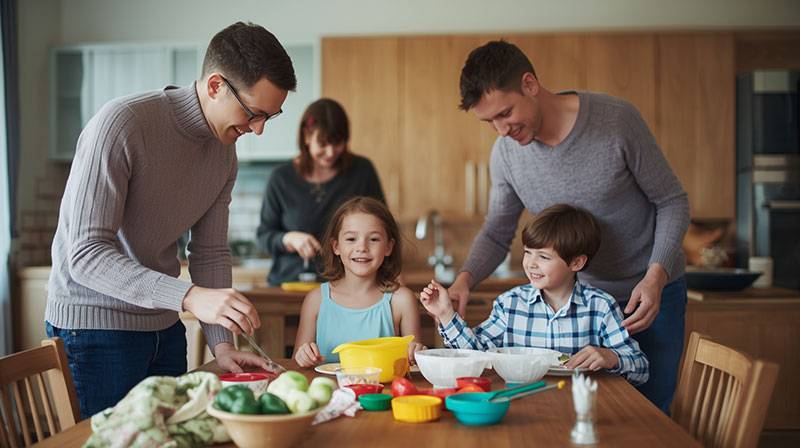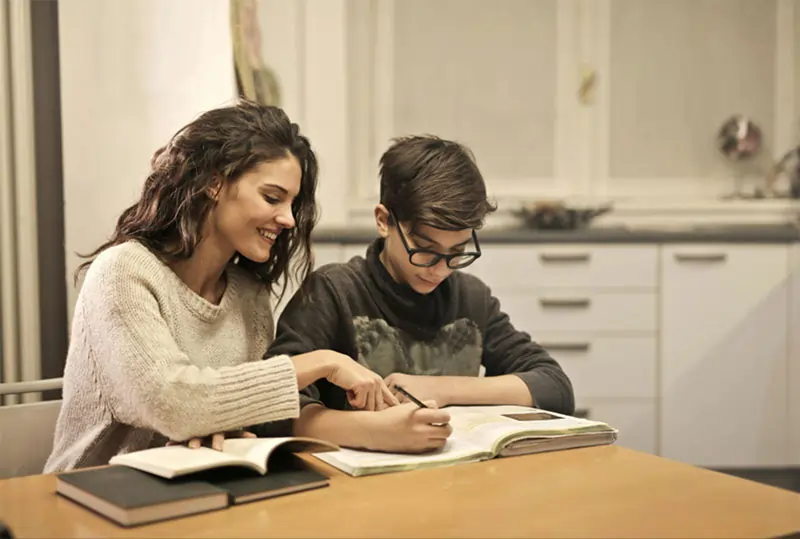Teaching Kids Responsibility Through Everyday Family Life
Caring for kids is more than just giving them food, clothes, and a place to live. Parents can teach their kids how to be responsible, independent, and solve problems, which will help them for the rest of their lives. Kids learn these things from their families every day, not in school or books. Parents can teach their kids about responsibility and how to grow as people by giving them chores that are right for their age, letting them help make family decisions, or encouraging them to be curious about the world.
The first step to being responsible is to have regular routines. When kids know what their parents want from them, they do better. When kids do chores every day, like making the bed, putting away school supplies, or helping with meal prep, they learn that their actions have an effect on the whole house. Routines give you a structure, but you can still be in charge.
Kids also get a lot of chances to be responsible when they work on family projects. When kids clean out storage spaces, plan a small garden, or have a garage sale, they learn how to plan, follow through, and work together. Through these activities, kids learn how to set goals, manage their time, and feel good about reaching them.
Encouraging Critical Thinking
Parents can help their kids learn how to think critically at home by doing activities with them. Parents can give their kids problems that make them think, plan, and choose. It can be easy to plan meals for a week, but it can be harder to stick to a small budget for a family outing.
Kids’ confidence grows when they learn how to solve problems in real life. For instance, when parents are planning a family trip, they can tell their kids to look into different places to go, weigh their options, and figure out how to get there. These tasks help kids feel like they own something and teach them that making plans can help them do better.
Parents can also introduce children to professions that involve observation, analysis, and investigation. For example, learning about what criminal investigators do can make you want to think about things and make choices. Investigators collect data, examine evidence, and draw conclusions through meticulous observation and logical reasoning. When kids see examples of this kind of work that are right for their age, they learn how important it is to pay attention to details, keep trying, and make moral choices when they have problems.
Age-Appropriate Responsibilities
You should give a child tasks that are right for their age and level of development. Preschoolers can help set the table or feed pets, and toddlers can learn how to put toys in bins. Kids in elementary school can help with chores that are more organized, like watering plants or doing the laundry. Teenagers can do harder things, like grocery shopping, cooking simple meals, or keeping track of their own schedules.
There are many good things about teaching responsibility to help kids become more independent. Kids learn how to plan ahead, be kind to themselves, and understand what other people need. You get more confident the more responsibilities you have. Parents can help their kids by giving them direction, setting clear goals, and praising their hard work and achievements.
Balancing Freedom and Guidance
Letting kids deal with the results of their actions is a big part of teaching them how to be responsible. When kids make choices and deal with the results, they learn about how things are related. Parents can help their kids find a balance between giving them freedom and giving them guidance by setting limits and letting them make their own choices.
For example, a child might choose how to do their homework or how to spend a little bit of money. Parents can watch, give advice if asked, and give their thoughts on the results. Over time, kids learn these lessons and how to make good choices on their own.
Fostering Accountability Through Daily Tasks
- Household chores: Assigning regular chores such as cleaning, organizing, or helping with meal prep teaches children that their contributions matter.
- Pet care: Feeding, walking, and grooming pets instills a sense of responsibility for another living being.
- School organization: Encouraging children to manage their schoolwork, pack bags, and keep track of assignments builds organizational skills.
Doing these chores every day teaches kids that hard work can pay off. When kids know how important their actions are, they become more responsible and work harder. This helps them in school, with friends, and in their future jobs.
Building Family Collaboration
When families work together, their relationships get stronger and everyone feels more responsible. Kids learn how to work together and talk to each other when you let them help make decisions around the house. Planning a family meal, a vacation, or home projects can help everyone work together to solve problems.
- Collaborative projects: Family garden or home improvement projects teach planning, cooperation, and shared responsibility.
- Decision-making opportunities: Allowing children to contribute ideas for family events encourages participation and critical thinking.
When kids work together, they learn how to care about other people, how to listen to them, and how to negotiate. These experiences prepare kids for future social and work situations where they will need to work together.
Responsibility Beyond the Home
When you teach your kids to be responsible at home, they will naturally be responsible at school, in their communities, and in their extracurricular activities. One way to teach kids about their social responsibilities is to get them involved in community service, volunteer work, or local clubs. Kids learn that what they do affects more than just their own family.
Parents can teach their kids how to be good citizens by having them help with things like cleaning up the neighborhood, collecting money for charity, or planning events in the area. Talking about the jobs of professionals, like police officers who keep the peace and protect the public, can also help kids understand what they need to do to be good citizens. Learning about these roles makes it clear how important it is to be honest, responsible, and think critically in real life.
Celebrating Milestones and Progress
People are more likely to act responsibly when they know their accomplishments are being recognized. Kids want to keep learning new things when they celebrate big things, like finishing a hard project, getting things done on time, or helping a friend or sibling. Positive reinforcement makes people feel good about themselves and makes them want to keep working hard.
Parents make their kids feel safe and willing to take the lead by praising growth instead of perfection.
Lifelong Lessons
What kids learn about being responsible at home will affect their lives in the future. Kids learn important life skills when they learn how to do chores, make decisions, and work with their family. They use these skills in school, with friends, at work, and later as parents.
Getting kids ready for the hard parts of being an adult means teaching them to be curious, solve problems, and do the right thing. Parents who model and promote responsible behavior assist their children in becoming autonomous, resilient, and socially conscious.


